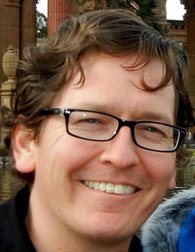Why We Need Open Source Pharma
BY JOHN WILBANKS

The pharmaceutical industry is broken. Every year, it spends more money to discover fewer drugs than before, and the drugs that do make it to market are priced at levels that exclude all but the very wealthy from access. It is now clear that discovering safe, effective new drugs is not something that can be effectively "industrialized" for higher throughput. Every success still must pay off a legacy of failures, with prices skyrocketing into the hundreds of thousands of dollars per year for many new compounds. And those prices bring with them serious questions of access, fairness, and human rights: Is the social view of drug discovery one that accepts pricing much of the world out of the market as an opportunity cost? The industry is thus caught on three sharp points at once. Its productivity is down, its prices are up, and those prices themselves are under withering attack from patient advocates, the public sector, and governments across the world. There is also a new approach being deployed: Open source. It’s a simple concept, and a fundamental part of human culture. But as a business practice, sharing touches politics, economics, law, technology, and society. The emergence of sharing in software was grounded in freedoms: The right to re-use, to change, to share with others, without asking for permission from a centralized authority. Sharing has changed markets in software, textbooks, encyclopedias, stock photography, scholarly literature, and music. It has been touted since the early 1990s as a candidate to accelerate pharmaceutical knowledge development, and clear sharing inroads already exist in non-profit (Sage Bionetworks, Open Source Drug Discovery, Drugs for Neglected Diseases initiative), public-private (Accelerating Medicines Partnership), government (OSTP Public Access Memo), and even fully commercial initiatives (Project Datasphere). This should not be a surprise. There is no inherent reason that pharmaceutical companies must control all phases of the process, like a Hollywood studio in the old days. It’s simply been the case that, until recently, doing everything inside the walls of a unified corporate entity created the best statistical odds to progress from disease understanding to molecule discovery to clinical trials and marketing. The greatest—and saddest—failure would be to accept that this broken system as the only one that is capable of discovering new drugs. As the environment outside the giant firm gains capacity through public and private investment, through the distribution of computation and cheap data, and through the emergence of connected networks of investigators, it becomes able to support every element of the drug discovery value chain. This puts us in position to test the open source approach against the frequent and proven failures of the traditional drug development system. Doing so is a moral imperative: If we can increase accuracy of decisions or decrease failures by even a single order of magnitude, it will mean more drugs for more diseases on the market at lower costs. It will not be easy. Drug discovery is fiendishly hard, biology is fiendishly complicated, and the whole enterprise is diabolically expensive. But the good news is that, comparatively, testing the open source pharma approach is cheap. All that is missing is the will to try. John Wilbanks is the Chief Commons Officer for Sage Bionetworks. His personal blog is http://del-fi.org, and his Twitter account is @wilbanks. |
Other essays in this series: James Kassaga Arinaitwe, Global Health Corps & Aspen Institute Fellow / Kampala Manica Balasegaram, Exec. Director, Access Campaign, Médecins Sans Frontières / Geneva Polly J. Price, Emory University law professor / Atlanta Dimitrios Tzalis, Founder & CEO, Taros Chemicals GmbH & Co. KG. / Dortmund T.V. Mohandas Pai, Chairman, Manipal Global Education Services / Bangalore Els Torreele, Director, Access to Essential Medicines Initiative, Open Society Foundations / NYC Tomasz Sablinski, CEO of Transparency Life Sciences / NYC Zakir Thomas, Open innovation expert & former Project Director of OSDD / Delhi Matthew Todd, Founder of Open Source Malaria / Sydney & Cambridge |

